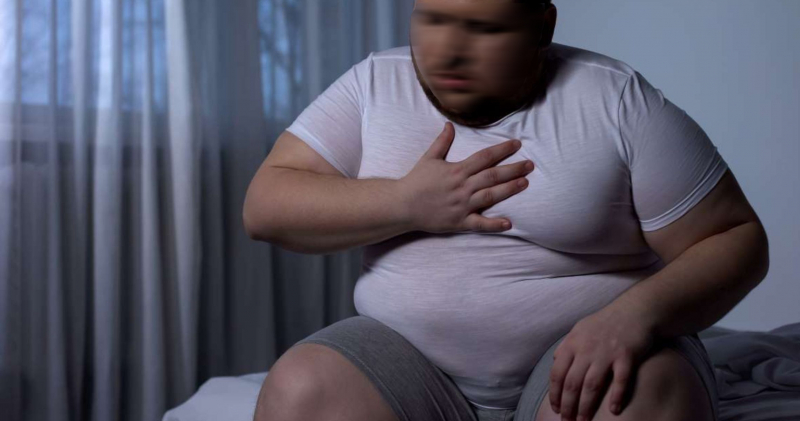According to the Central Endocrinology Hospital, a male patient with TTĐ (28 years old, Hanoi) weighing 175kg was admitted to the hospital with difficulty breathing, heart failure and swelling in both legs, making it impossible to move.
The young man was quickly put on a ventilator and received special care in the Intensive Care Unit.
After taking a medical history, patient D was diagnosed with obesity and gout 10 years ago. Two weeks before being admitted to the hospital, the male patient had gained more than 10 kg of weight uncontrollably due to consuming a lot of sweet drinks (milk tea, soft drinks, etc.).

MSc. Dr. Nguyen Dang Quan, Deputy Head of the Department of Intensive Care, said that through clinical examination and test results, the patient was diagnosed with sleep apnea syndrome. This syndrome is common in patients with a history of cardiovascular diseases and metabolic disorders such as obesity, gout, type 2 diabetes, high blood pressure, heart failure, stroke, etc.
According to the doctor, in overweight and obese people, the amount of fat distributed around the upper respiratory tract leads to narrowing of the airway. This contributes to increased airway compression during sleep. In addition, the amount of fat concentrated in the chest and abdomen also causes reduced lung capacity and increased oxygen demand.
Therefore, obstructive sleep apnea is the most common disease, especially in overweight and obese patients. If not treated promptly, it will cause many dangerous complications such as: myocardial infarction, stroke, high blood pressure.
According to doctors at the Central Endocrinology Hospital, common symptoms of obstructive sleep apnea include: Snoring is the most common sign. Patients have episodes of apnea at night, wheezing, gasping, and terminal apnea. Snoring is loudest when lying on the back, and decreases when lying on the side.
Or tired all day. People with sleep apnea are often tired, have difficulty concentrating at work, have memory loss, change in mood, and are easily irritated.
There is also daytime sleepiness. The patient may fall asleep while working, even while driving. Or headaches upon waking, caused by reduced oxygen levels in the brain during the night.
Doctors also recommend that some symptoms of obstructive sleep apnea can be confused with other diseases, so they are not recognized early, are unclear and are often overlooked. Therefore, diabetic patients in particular and patients at risk in general need to go for a medical examination to detect this syndrome early to limit unnecessary complications.
Source: https://cand.com.vn/y-te/chang-trai-nang-175-kg-bi-ngung-tho-khi-ngu-i763954/






![[Photo] Capital's youth enthusiastically practice firefighting and water rescue skills](https://vstatic.vietnam.vn/vietnam/resource/IMAGE/2025/4/3/3f8481675271488abc7b9422a9357ada)














































































Comment (0)